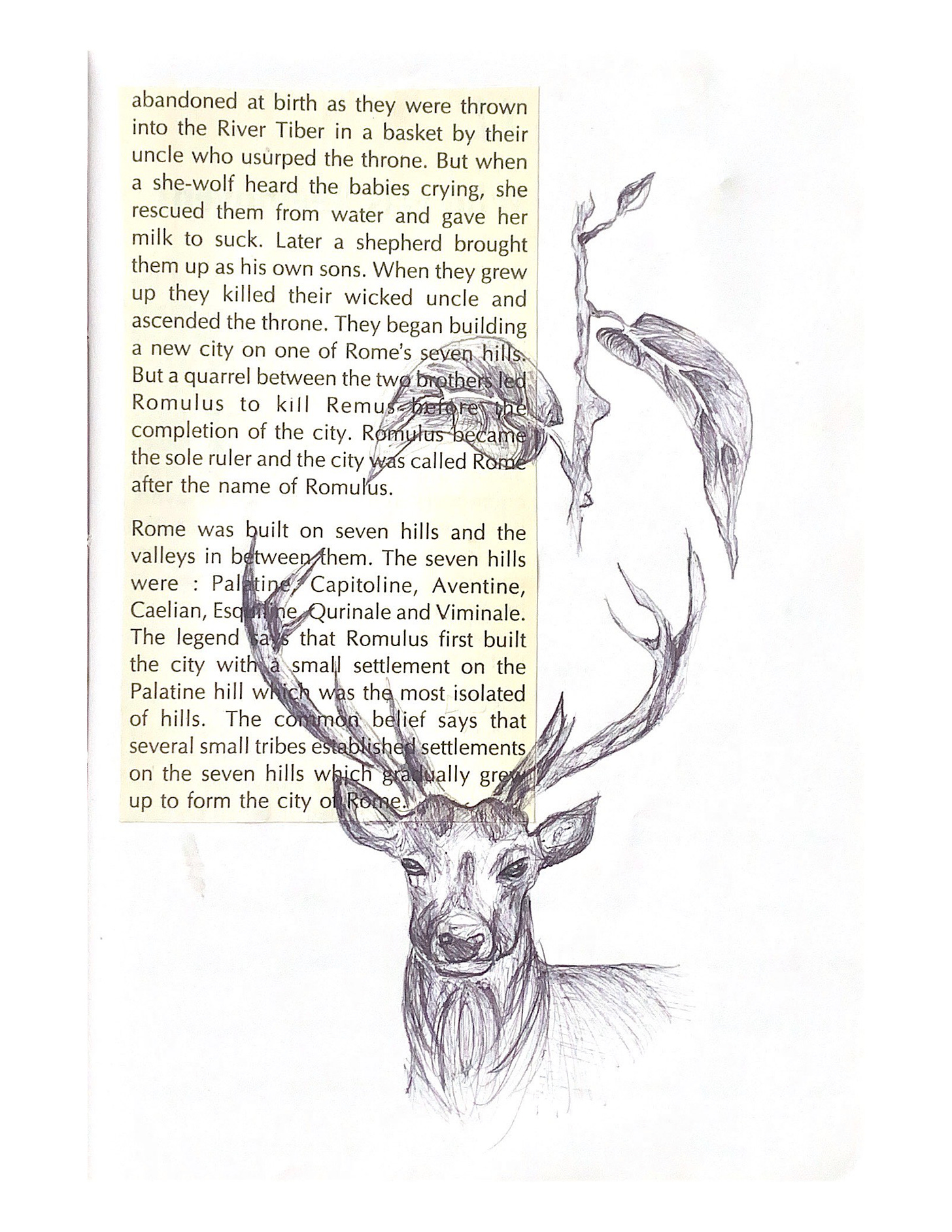I'll admit it: I'm a notebook hoarder. Expensive dot grids rest on a towering pile of yellow pads; accordion sketchbooks occupy one corner of the art cupboard along with pocket-sized diaries. It doesn't matter to me that I write in barely any of these. If anything, I buy them... not to write in them.
But there are some that I sacrifice to the inevitable impulse for putting pen to paper. They start organised but dwindle into this catch-all for fleeting ideas and grocery lists. In one notebook, a list of ambitious goals is accompanied by a whirlwind recipe for a mug cake that my sister taught me. In another, I've practised cursive in gold ink next to a surprisingly nice biro sketch from a trip I took a while back. But in most, there's a trace of someone I used to be many years ago.
In "On Keeping a Notebook", an essay from Slouching Towards Bethlehem, Joan Didion mentions that note-taking is a peculiarly compulsive practice. It's also highly personal, although the reasons might differ. For diary-keepers, for example, putting pen to paper might be to keep a meticulous record, a history to flip back on. The notebook is less rigid, more catch-all, for Didion:
"How it felt to me: that is getting closer to the truth about a notebook."
What's the point of keeping a notebook, then? Surely all writing is meant to be for record-keeping? Didion disagrees, instead tilting towards "feelings-keeping".
Notes might not make sense to others; they might not make sense to us, either. But while they might look like a sleeptalker's message on paper, these notes can open up a treasure chest of memories so vivid you can taste the air and smell the presentness. Humans have an odd way of associating memory to the strangest of things: A whiff of perfume, the jaunty tilt of a hat, the musical tone of someone's voice. So why can't notebooks be the same, right?
Didion says the opposite happens in the real world, where only "the very young and the very old" are allowed to be self-centred. While this might not be the case in many cultures today, it's still normal in my culture to bite down on your story if an elder wants to tell theirs, or if a child wants to sing a song they've sung at every party for the last year.
Seeing that, notebooks become some of our more personal spaces, where the "I" commands complete attention and all else revolves around it. They're a connect-the-dot record of all your past selves, drawing you back into the time and space of memory instead while also reading it as the third party.
We tend to forget even the things that took up most of our time and heart at one point; a notebook is a way to go back there, not by regressing, but as a future self visiting a past self. It's especially meaningful to me in this phase of life because I often think about the headstrong, quietly courageous girl I used to be. She's still in here, somewhere, but this cautious version reigns.
It takes some mental preparation to open an old notebook — you never know what you might find. Being deeply personal, it can also be unsettling if you dwell on the pages too much. At those times I remind myself that while the pull of the past can be tempting, the here and now is what counts.
Did I write all of this to justify my impulsive notebook purchases? Maybe. But I like to think that, as a sly 5GB expansion of memory, what I'm buying is more space for myself to occupy, running parallel to what I currently occupy in linear time.
This post contains affiliate links. I earn a tiny commission when you purchase this book through my link, at no extra cost to you. Using these links will help me keep more essays like these coming. 💌





i too am a hoarder of notebooks!! and i love looking through other people's art journals but have never really managed to keep a consistent one myself. your illustrations are lovely <3